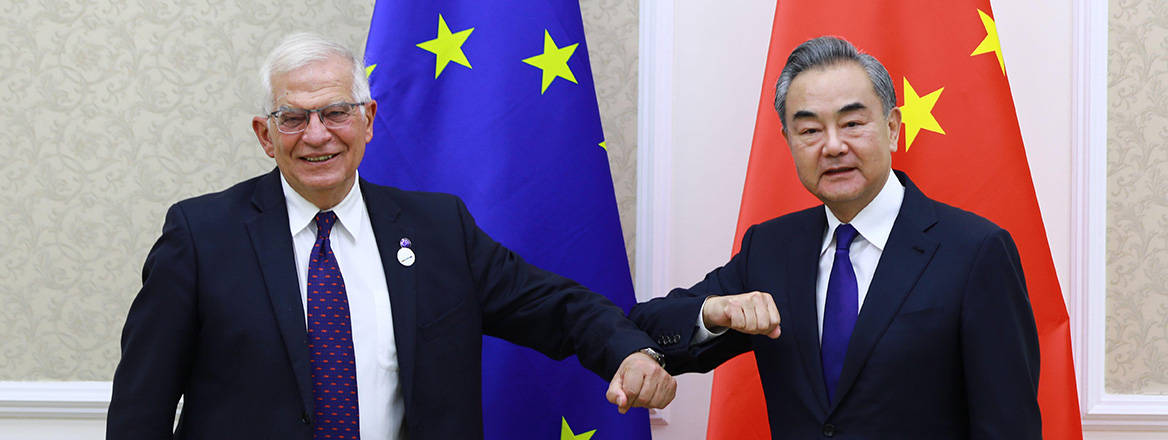RUSI
|
|
The EU in Chinese Media: Interpreting Xinhua's Reporting from 2012–2021
Reporting on the EU by China’s Xinhua News Agency has greatly increased over the past decade. What can analysis of the coverage tell us about Chinese attitudes to the EU?

The EU continues to refine its approach to a newly ambitious China that has been empowered by decades of strong economic growth. For Europe, China is simultaneously a 'cooperation partner' (on climate change), a ‘negotiating partner' (on trade), a ‘strategic competitor' (in economic terms) and a 'systemic rival' (having differing values and politics). How to strike the right balance between these different facets?
The answer depends in part on what conclusions are drawn about Chinese views and intentions. Any effort to interpret these views encounters the difficulty that public statements designed for foreign audiences may be influenced by Sun Tzu's dictum about confusing the enemy, so that they cannot fathom one's real intent. A further problem is an asymmetric language barrier. China is more familiar with the output of European media than Europe is with that of Chinese media.
In a recent briefing for the European Parliamentary Research Service, we analysed Chinese-language reporting on the EU by the Xinhua News Agency from 2012 to 2021. Xinhua, founded by Mao Zedong in 1931, is China's largest news agency. It is firmly under party control: its president, He Ping, is a member of the Communist Party's Central Committee.
We identified and retrieved 1,158 Chinese-language articles from Xinhua's website with the Chinese term for the EU – '欧盟' – included in the title. We used text-mining software to extract main themes, month by month. We then applied automatic sentiment analysis to identify whether the tone of the coverage was positive or negative. We also manually reviewed 441 articles from 2020 and 2021 for a closer look at trends in coverage during the coronavirus pandemic.
Two structural trends emerged. First, Xinhua has greatly expanded its coverage on the EU over the past decade. This is associated with several visits to Europe by President Xi Jinping from 2018.
Second, the tone of the coverage is neutral, rather than negative. Automated sentiment analysis has its limits: for example, it struggles to gauge humour or irony. In this case, our findings are generally consistent with surveys within China of opinions about Europe. One could speculate that China prefers to reassure its citizens of positive relations with the EU, especially at a time of heightened international tensions in the wake of the pandemic.
As regards content, we identified three main trends. First, the coverage reflects continued Chinese interest in positive relations with the EU, and some measure of support for European integration. This extended to coverage of Brexit, and also characterised reportage on cooperation during the pandemic. Second, few details are given of EU criticism of China, which is invariably dismissed as unfounded. Third, disagreements between the EU and the US were reported prominently.
Click here for the full press release
Original article link: https://rusi.org/explore-our-research/publications/commentary/eu-chinese-media-interpreting-xinhuas-reporting-2012-2021


.gif)